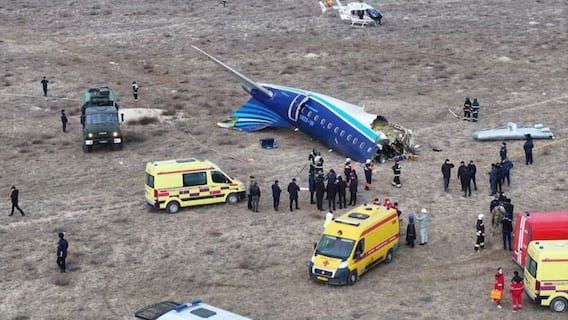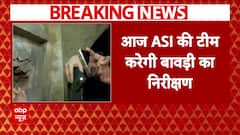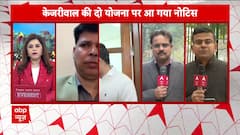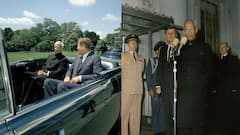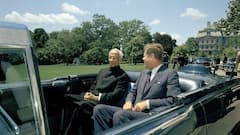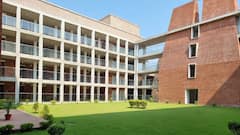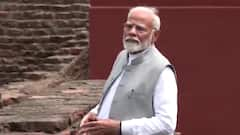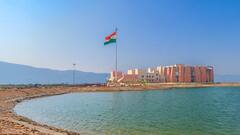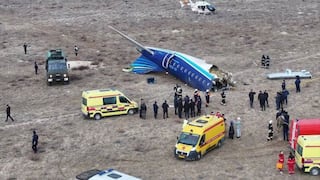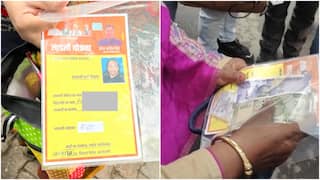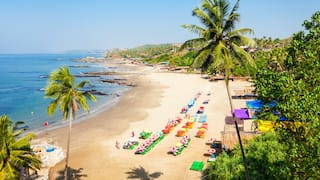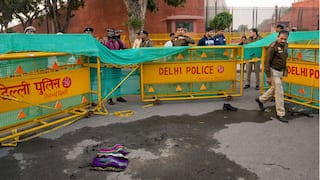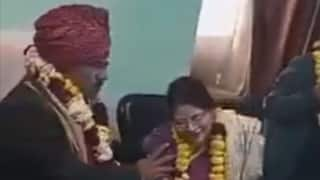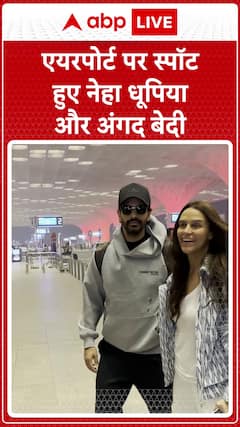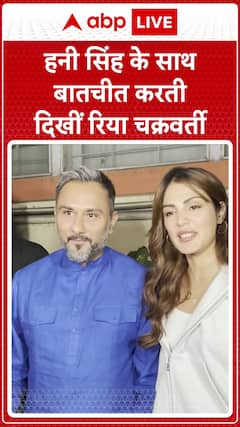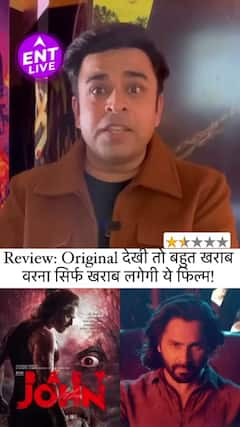CV Raman To Narasimha Rao: Complete List Of Bharat Ratna Awardees Since 1954
As many as 53 eminent personalities have been conferred the Bharat Ratna since 1954, when the award was instituted. Check the full List in this article

Bharat Ratna Recipients' List: The Government of India confers Bharat Ratna, the highest civilian award of the country, on eminent personalities, evaluating their contributions to the nation. The award was instituted in 1954, seven years after India got Independence from British rule. Chakravarti Rajagopalachari, Dr Sarvepalli Radhakrishnan, and Dr CV Raman were bestowed the honour that year. The count of Bharat Ratna recipients has since gone up to 53.
According to the Ministry of Home Affairs, the Bharat Ratna is awarded "in recognition of exceptional service/performance of the highest order in any field of human endeavour", and the recipients are chosen "without distinction of race, occupation, position or sex".
The recipients of the award so far include former Presidents, Prime Ministers, scientists, political leaders, educators, and artistes, among others.
The award constitutes a medallion and a certificate signed by the President. There is no monetary grant.
As laid down in Article 18 (1) of the Indian Constitution, the Bharat Ratna cannot be used as a prefix or suffix to the name of the recipient. The awardees can, however, use ‘Awarded Bharat Ratna by the President’, or ‘Recipient of Bharat Ratna Award' on their letterhead or visiting card etc.
Here is a list of the personalities who were awarded the Bharat Ratna since 1954.
Full List Of Bharat Ratna Awardees
1. Chakravarti Rajagopalachari (1954): The last Governor-General of independent India, C Rajagopalachari was a freedom fighter, statesman, and founder of the Swatantra Party. He was honoured for his contribution to Indian politics and literature.
2. Dr Sarvepalli Radhakrishnan (1954): Esteemed philosopher and India's second President, Radhakrishnan was celebrated for his profound scholarship and contribution to Indian education. His birthday is observed as Teachers' Day in India.
3. Dr CV Raman (1954): Nobel laureate in Physics for discovering the Raman Effect, Raman's work in the field of light scattering is globally recognised. His research laid foundational stones for Indian scientific advancements.
4. Dr Bhagwan Das (1955): A philosopher, freedom fighter, and educationist, Das was a close associate of Mahatma Gandhi. His contributions to Indian education and philosophy earned him this honour.
5. Dr M Visvesvaraya (1955): An eminent engineer and statesman, Visvesvaraya's contributions to engineering and education in India are monumental. He designed the famous Krishna Raja Sagara dam of Mysuru.
6. Pandit Jawaharlal Nehru (1955): Independent India's first Prime Minister, Nehru's vision for a secular, modern India was pivotal in shaping the newly independent nation. His policies laid the foundation for India's socio-economic development.
7. Pandit Govind Ballabh Pant (1957): A key figure in India's freedom struggle and a prominent political leader, Pant's contributions to building the Indian Republic were significant, including his tenure as Home Minister.
8. Dr Dhondo Keshav Karve (1958): A social reformer and educator, Karve dedicated his life to the empowerment of women through education, founding the first women's university in India.
9. Dr Bidhan Chandra Roy (1961): An eminent physician, freedom fighter, and the second Chief Minister of West Bengal, Roy made noteworthy contributions to public health and education.
10. Purushottam Das Tandon (1961): A freedom fighter and advocate for the Hindi language, Tandon played a significant role in the Indian independence movement and the promotion of Hindi as an official language of India.
11. Dr Rajendra Prasad (1962): India's first President, Dr Rajendra Prasad was a key leader in the Indian independence movement and the Constituent Assembly. His leadership and vision helped shape the Republic of India.
12. Dr Zakir Husain (1963): A distinguished educator and India's third President, Husain's contribution to Indian education is celebrated. He established the National Muslim University, which came to be known as Jamia Millia Islamia.
13. Dr Pandurang Vaman Kane (1963): A Sanskrit scholar and Indologist, Kane's monumental work on the "History of Dharmasastra" is considered a critical contribution to Indian legal and cultural history.
14. Lal Bahadur Shastri (Posthumous, 1966): India's second Prime Minister, Shastri was known for his leadership during the India-Pakistan War of 1965, and his slogan "Jai Jawan Jai Kisan", which resonated deeply with the Indian populace.
15. Indira Gandhi (1971): The first and, to date, the only woman Prime Minister of India, Indira Gandhi's leadership was marked by significant political and social changes.
16. VV Giri (1975): An advocate for labour rights and the fourth President of India, Giri's contributions to Indian labour law and administration were significant.
17. K Kamraj (Posthumous, 1976): A key figure in Indian politics and the Indian independence movement, Kamraj's leadership in the Indian National Congress and his role in the "Kamaraj Plan" were instrumental in revitalising the party after Independence.
18. Mother Teresa (1980): A symbol of compassion and service to the poor and the sick, Mother Teresa's work through the Missionaries of Charity in Kolkata brought her international acclaim.
19. Acharya Vinoba Bhave (1983): A spiritual successor of Mahatma Gandhi and the initiator of the Bhoodan Movement, Bhave worked tirelessly for land reform and non-violent resistance.
20. Khan Abdul Ghaffar Khan (1987): A close associate of Mahatma Gandhi, Ghaffar Khan was a Pashtun independence activist who opposed British rule through non-violent means. He was known as the "Frontier Gandhi".
21. MG Ramachandran (Posthumous, 1988): A film actor turned politician, MGR's contributions to Tamil Nadu's development and welfare schemes as chief minister left a lasting impact.
22. Dr BR Ambedkar (Posthumous, 1990): Architect of the Indian Constitution, Ambedkar was a crusader for social justice, advocating for the rights of the marginalised and working towards the eradication of caste discrimination.
23. Nelson Mandela (1990): South African anti-apartheid revolutionary, political leader, and philanthropist, Mandela's efforts to dismantle apartheid and foster racial reconciliation earned him global recognition.
24. Rajiv Gandhi (Posthumous, 1991): The youngest Prime Minister of India, Gandhi's tenure was marked by efforts towards leading India into the information age and significant economic and technological advancements.
25. Sardar Vallabhbhai Patel (Posthumous, 1991): Known as the "Iron Man of India," Patel played a crucial role in the country's struggle for independence and the subsequent integration of princely states into the Indian Union.
26. Morarji Desai (1991): An important leader in the Indian independence movement and the fourth Prime Minister of India, Desai was known as a leader who promoted peace and non-violence.
27. Maulana Abul Kalam Azad (Posthumous, 1992): A senior leader in the Indian independence movement and India's first Minister of Education, Azad's contribution to establishing an educational foundation in India is unparalleled.
28. JRD Tata (1992): An aviator and industrialist, Tata founded India's first airline and was a pioneer in the Indian aviation and industrial sector, leading the Tata Group to new heights.
29. Satyajit Ray (1992): An acclaimed filmmaker, Ray's contributions to Indian cinema are legendary, with his work receiving international recognition, including the Oscar, and shaping the narrative of Indian filmmaking.
30. Gulzarilal Nanda (1997): Acting Prime Minister of India on two occasions, Nanda's political career was marked by his dedication to labour issues and economic policies.
31. Aruna Asaf Ali (1997): A freedom fighter known for hoisting the Indian National Flag at the Bombay Gowalia Tank Maidan during the Quit India Movement, Ali was a prominent figure in India's struggle for independence.
32. Dr APJ Abdul Kalam (1997): Known as the "Missile Man of India", Kalam's work as a scientist and his presidency were marked by his commitment to education and inspiring the youth of India.
33. MS Subbulakshmi (1998): A Carnatic vocalist, Subbulakshmi's contributions to Indian classical music were profound, with her performances across the globe bringing Indian music to an international audience.
34. Chidambaram Subramaniam (1998): Known for his role in India's Green Revolution, Subramaniam's agricultural policies and initiatives significantly improved India's food security and farming practices.
35. Jayaprakash Narayan (Posthumous, 1999): A freedom fighter and political leader, Narayan was instrumental in the Indian independence movement and later in the fight against corruption through the "Total Revolution" movement.
36. Professor Amartya Sen (1999): A Nobel laureate in Economics, Sen's work on welfare economics and social choice theory has had a profound impact on development economics worldwide.
37. Lokpriya Gopinath Bordoloi (Posthumous, 1999): A key figure in the Indian independence movement and the first Chief Minister of Assam, Bordoloi's efforts were crucial in keeping Assam united with India.
38. Pandit Ravi Shankar (1999): A virtuoso sitar player and composer, Shankar's role in bringing Indian classical music to the global stage is unparalleled, influencing many musicians worldwide.
39. Lata Mangeshkar (2001): Known as the "Nightingale of India", Lata Mangeshkar's voice has been iconic in Indian music. The legendary artiste recorded songs in over a thousand Hindi films and in various regional languages.
40. Ustad Bismillah Khan (2001): A maestro of the shehnai, Khan's music transcended cultural boundaries, making significant contributions to Indian classical music and bringing the shehnai to a global audience.
41. Pandit Bhimsen Joshi (2009): A legendary figure in Indian classical music, Joshi's renditions of khayal and bhajans have left an indelible mark on the genre, earning him widespread acclaim.
42. Professor CNR Rao (2014): A renowned scientist and authority in solid-state and materials chemistry, Rao's extensive research and publications have significantly contributed to the field of chemical science.
43. Sachin Tendulkar (2014): One of the greatest cricketers of all time, Tendulkar's records, including the most runs in international cricket, have made him a global sports icon.
44. Atal Bihari Vajpayee (2015): A statesman and poet, Vajpayee's tenure as the Prime Minister of India was marked by economic reforms and efforts towards improving India-Pakistan relations.
45. Pandit Madan Mohan Malaviya (Posthumous, 2015): An educator and independence activist, Malaviya's role in the establishment of Banaras Hindu University was pivotal in promoting higher education in India.
46. Nanaji Deshmukh (Posthumous, 2019): A social activist and politician, Deshmukh's contribution to rural development and education in India through various initiatives and institutions has been transformative.
47. Dr. Bhupen Hazarika (Posthumous, 2019): A cultural icon in Assam and across India, Hazarika's music and lyrics, reflecting social and political themes, have deeply influenced the cultural landscape.
48. Pranab Mukherjee (2019): Serving as the 13th President of India, Mukherjee's distinguished career in Indian politics spanned several decades, contributing significantly to national development and governance.
49. Karpoori Thakur (Posthumous, 2024): Thakur was a prominent political leader in Bihar, known for his dedication to social justice and empowerment of the underprivileged.
50. Lal Krishna Advani (2024): Advani is a veteran politician, playing a crucial role in Indian politics and the Bharatiya Janata Party's growth. He is known for his role in the Man Janmabhoomi movement.
51: Chaudhary Charan Singh (Posthumous 2024): The fifth prime minister of India, Chaudhary Charan Singh was a gifted parliamentarian who is known as the chief architect of land reforms in Uttar Pradesh, a state he led as its chief minister twice.
52: PV Narasimha Rao (Posthumous, 2024): Former Prime Minister PV Narasimha Rao is remembered for the liberal reforms introduced to India's economy during his reign.
53: Dr MS Swaminathan (Posthumous, 2024): The reverred agriculture scientist, Dr MS Swaminathan, is known as the 'Father of Green Revolution' in India and remembered for his contributions towards agriculture and farmers’ welfare.
Education Loan Information:
Calculate Education Loan EMI
Trending News
Top Headlines





